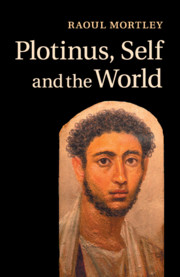Book contents
- Frontmatter
- Contents
- Preface
- Introduction
- 1 The individuated self and memory
- 2 Memory and forgetting
- 3 Ignorance, love and play
- 4 Plotinus’ Eros
- 5 The self: ‘and we too are kings’
- 6 Being and having
- 7 Self-knowledge
- 8 Art and the seduction of beauty
- 9 Face, image and the self
- Conclusion
- Bibliography
- Index
- References
4 - Plotinus’ Eros
Published online by Cambridge University Press: 05 October 2014
- Frontmatter
- Contents
- Preface
- Introduction
- 1 The individuated self and memory
- 2 Memory and forgetting
- 3 Ignorance, love and play
- 4 Plotinus’ Eros
- 5 The self: ‘and we too are kings’
- 6 Being and having
- 7 Self-knowledge
- 8 Art and the seduction of beauty
- 9 Face, image and the self
- Conclusion
- Bibliography
- Index
- References
Summary
The student of a tradition always looks for the little changes (the apparently little ones) in order to discover the major areas of innovation and development in that tradition. It is often in the hidden changes that one finds the most significance, since these may point to a moment of great significance: the suppressed moment of crucial innovation. Those who do their work within a tradition in antiquity tend to want to minimise the differences between their own thought and the traditional position: it is preferable to force the meaning of a passage than to admit some departure from orthodoxy. Traditionalism was favoured in antiquity, whilst apparent innovation is favoured in the contemporary era.
With the exegesis by Plotinus of Diotima’s speech in Plato's Symposium, we have a perfect example of interpretation which is forced, in order to preserve the appearance of traditionalism. Plotinus finds himself having to deal with a story which has the form of an allegory of the lover, but he comes to it with an already well-developed philosophical system. Other writings, such as On Beauty (Enn. I.6) for example, put on display the rigorous character of his thoughts on beauty, and on how it can be apprehended. As a Platonist, Plotinus must find inspiration in this little love story, or rather this phenomenology of the lover, but in his capacity as an original thinker, Plotinus cannot always adapt to what had become the text of tradition. We will consider these differences and their significance.
- Type
- Chapter
- Information
- Plotinus, Self and the World , pp. 55 - 67Publisher: Cambridge University PressPrint publication year: 2013



